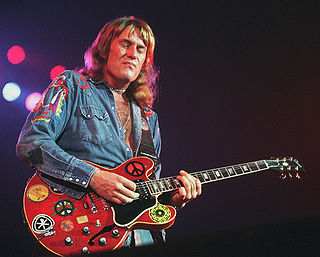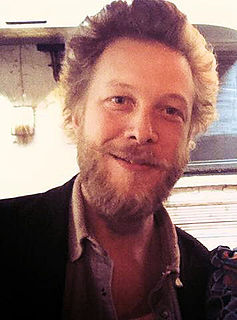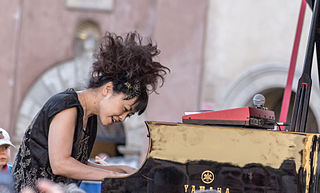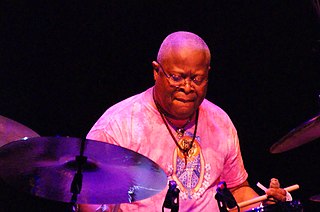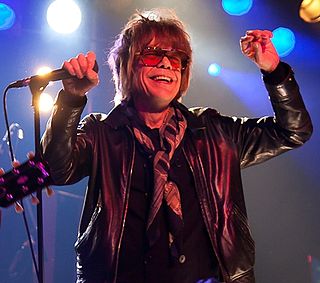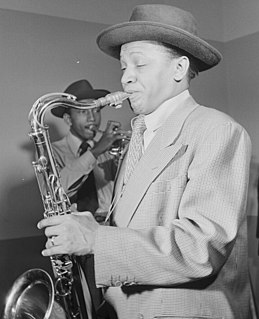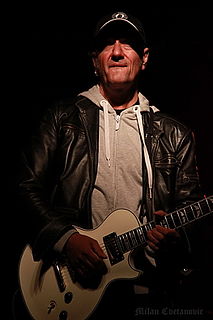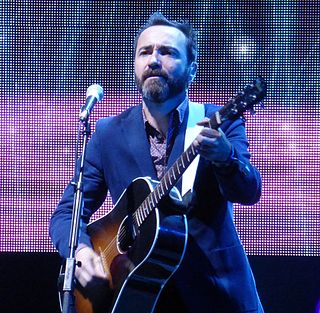A Quote by Steve Miller
We're not like a nostalgia act, or the normal classic rock act - we're a really good musical organization, ... You're going to hear some blues, some jazz, a little of everything. The guys in the band are great musicians. When we play, we're there for real. It's not about posing, strutting in tights, that kind of stuff. It's all about music, and I've always respected my audience that way.
Related Quotes
In some ways, jazz is the most precise of art forms and the loosest in the sense that it's all about improvisation, but the musicianship required is kind of insane. To actually play with real jazz musicians is a different level of musicianship that almost has no equal in any other form of music in the world.
It's impossible to tell how you're perceived. I think it's important not to think about it too much, because it really means nothing. Some people think we're a rock band, and that's ridiculous, and the idea of us being a folk band - you sit in a pub in Ireland and hear those guys play, and you're like, 'Yeah, we're definitely not a folk band.'
Some people dig jazz, some people dig classical music, some people dig rock. Everyone is so concerned about who they like. They always say, 'This guy is the best,' 'No, this guy is the best.' But I think everyone is great. I really don't have barriers to any type of music. I could listen to everything from metal to classical music to anything else.
Truth of the matter is, jazz is American music. And that doesn't mean bebop. Jazz is really about improvising. All the music that's been created in America has been pretty much improvised... Whether it's hillbilly or rock n' roll for blues, it's basically jazz music... It's basically about another way of hearing what comes out of America.
We are a band that stylistically crosses a lot of barriers and generational gaps. The heavier portion of the band, the modern music elements, the visual part of the band appeal to a younger audience. For an older audience, we have chops and great songs that are reminiscent of the things that were great about rock and roll when they enjoyed it. We're the kind of band that can cross those lines.
The amazing thing about Sweets [Edison] was that he exactly spoke the way that he played! He was really unique, the one and only. He was one of the greatest Blues players that I ever heard and played with. Nobody can play like Sweets man, nobody! Most of us, musicians, frequently quote Sweets' phrases in our solos. Like Lester Young, Sweets had a big influence on us musicians, especially when we play some Blues.
I was 21, and I was like, "Man, am I really gonna start over and try this whole thing over again? Do I want to start over and be in a rock band again and try to act like a 17-year-old for as long as I can?" Because that was what I was doing with Simon Dawes band. I decided that if I was going to go on playing music, I was going to try and work on it. So I got into Leonard Cohen and Will Oldham, guys that really inspired me not only as songwriters but also through their music as people, and that's kind of what the shift was for me.
I have a theory that musicians recognize each other and if they are destined to collaborate together they will. Mainly, they recognize each other according to the class they belong to. If they are punk-rocker kids from the neighborhood, they are going form a band. If they happen to be musicians that are going to play in pubs and restaurants, they are going to recognize each other, form a band and play together. If it's about musicians that are playing jazz and are going to jazz festivals, for e.g., then they are going to meet and work together.
I can't say enough good things about my band. I feel very fortunate that I found them when I did, very early in my career. Not only are they just great, nice guys; they're some of the best musicians you're likely to find. They do everything from gangsta rap to polka music and every genre in between. It's amazing.
When I was a little kid wanting to play music, it was because of people like Pete Johnson, Huey Smith, Allen Toussaint, Professor Longhair, James Booker, Art Neville ... there was so many piano players I loved in New Orleans. Then there was guys from out of town that would come cut there a lot. There was so many great bebop piano players, so many great jazz piano players, so many great Latin piano players, so many great blues piano players. Some of those Afro-Cuban bands had some killer piano players. There was so many different things going on musically, and it was all of interest to me.

